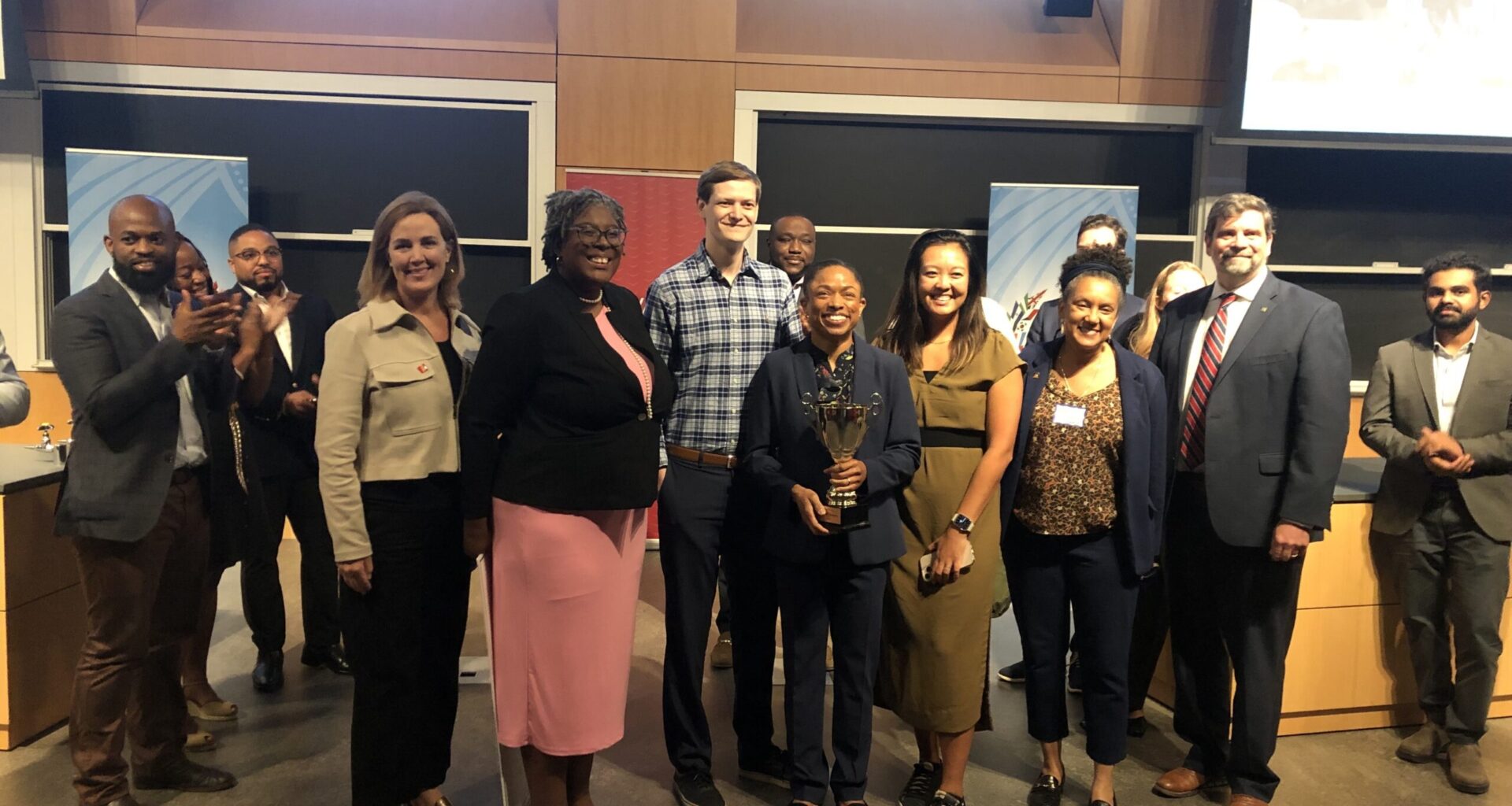BioLattice Ophthalmics founder Amelia Zellander is riding a wave of wins, landing the top prize in a local pitch competition for the second time this year.
Zellander’s tissue engineering company BioLattice won first place at the Philly regional Startup World Cup pitch competition on Wednesday, walking away with $20,000 and a spot at the global Startup World Cup in San Francisco this fall.
Like many life sciences startups, BioLattice isn’t an overnight success. Zellander has slowly been building momentum for her company over the last eight years, largely through local pitch competitions, which provide both an infusion of much-needed cash and a forum to meet potential investors. That’s especially valuable for biotech companies, which tend to require more money and resources to get off the ground.
“These amounts of money make a difference, and also it takes a lot of small touches to build your network with fundraising, and this is a part of that,” Zellander told Technical.ly. “It encourages us to keep doing what we know we have to do, because it’s such a marathon.”
BioLattice is developing a biomaterial called CorneaClear to repair and transplant the front layer of the eye. The startup’s first major funding came from winning first prize at a competition at the Enterprise Center in 2023. Earlier this year, BioLattice took home the grand prize at the BioLabs annual investor pitch day and was accepted into the HiveBio accelerator.
These wins don’t always translate into more funding, though.
“It takes a lot of getting in front of people,” she said. “It’s business dating, really.”
It’s a difficult time to raise money for any company, including life sciences startups that require a ton of funding to keep in motion. Philly’s life sciences sector has had a rough year, especially after one of the region’s top cell and gene therapy companies, Spark Therapeutics, experienced restructuring and layoffs this spring.
While a lot of Zellander’s recent success has come from pitch competitions, she ultimately wishes it didn’t take up so much of her time, she said. These competitions serve as a way to get her name out there and make connections that will lead to more funding.
“What I want is to focus all my energy on building the product and getting it to the patients,” she said. “That’s why I do this.”
Pitch events as capital pipelines
Pitch competitions offer an alternative route for founders to access funding, which is especially valuable in a difficult venture capital environment.
For its second year hosting a regional Startup World Cup, Philadelphia’s Department of Commerce wanted to offer more value to founders than just prize money, according to Tempest Carter, director of business development and strategic technology initiatives.
All ten companies that pitched participated in a feedback session before the competition, she said, and three earned cash prizes from the event.
Second place and a $10,000 check went to Vasowatch, a medtech company that developed a device hospitals can use to monitor postpartum mothers for excessive bleeding. UfarmX, a platform that connects farmers in Africa to funding for their businesses, won the $5,000 third-place prize.
For all the companies, the competition was a chance to showcase their work to investors.
Carter said her goal was to bring more investors into the room and boost the odds that founders would walk away with funding connections. Pitch competitions aren’t just about visibility, she said; they’re also a path to capital and a way to keep growing companies rooted in the region.
For example, greentech startup Carbon Reform won last year’s regional competition, and while it didn’t win the global competition, the company gained a platform that set it up to raise $5.5 million this year, Carter said.
“This is the easiest way,” Carter said. “The most useful way for me to infuse capital into businesses.”
Companies:
City of Philadelphia
